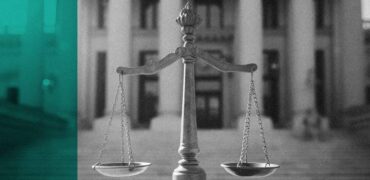In the rush for budgetary resources, tax representatives try, increasingly aggressively, to engage the personal liability of former associates or administrators for the company’s debts. At Costaș, Negru & Asociații we routinely and successfully manage such cases. We have chosen to present here a case recently completed at the Bucharest Court of Appeal.
Insolvency is the state of the debtor’s assets characterized by the insufficiency of funds needed to pay certain, liquid, and due debts.
The insolvency procedure establishes two main instruments to correct this asset imbalance. Alongside the annulment of acts concluded by the debtor to the detriment of the creditors’ rights prior to the initiation of the procedure, which allows for the nullification of fraudulent operations and the restoration of sums of money or other goods to the debtor’s estate, even independently of the existence of an uncovered liability, the law establishes a special form of liability for those who contributed to the debtor’s state of insolvency. This liability is meant to ensure the coverage of the insolvent debtor’s liabilities in cases where certain individuals can be held accountable for the insolvency.
In recent practice, the lawyers from Costaș, Negru și Asociații obtained a favorable decision in which the Bucharest Court of Appeal fully confirmed their arguments. Specifically, a liability claim was made against the administrator of an insolvent company under Article 169 paragraph (1) letters c) and d) of Law No. 85/2014 regarding insolvency prevention and insolvency procedures. Through this claim, the plaintiff requested the court to order the administrator, as the representative of the governing bodies, to bear the uncovered liabilities of the debtor.
Such a claim must be based on solid evidence supporting the allegations, as the administrator of a company enjoys, concerning their liability to the company, the protection offered by the business judgment rule. This rule implies that an administrator whose liability is being sought will be considered to have acted with the prudence and diligence of a good administrator if, at the time of the decision that caused the damage, they were reasonably entitled to believe they were acting in the interest of the company and based on adequate information.
The generic and speculative portrayal made by the plaintiff through the introductory action suggests a general mismanagement of the company.
We note that management errors by administrators can lead to a deterioration of the debtor’s financial situation, potentially resulting in insolvency. However, the liability of individuals who have made errors in the management and supervision of the company’s activities cannot be engaged, since the provision that completes the list of unlawful acts limits their scope by a subjective requirement related to the form of culpability: liability can be engaged, according to Article 169 paragraph (1) letter h), for “any other act committed with intent” (emphasis added). Therefore, management errors involve imprudent risk-taking or negligent pre-decision business information, being committed through fault.
The court accepted our arguments, noting that the plaintiff did not specifically indicate any action or deed that would lead to the conclusion that the continuation of an activity was ordered, in personal interest, which clearly led the legal entity to cease payments.
The inability to meet payments and the accumulation of losses is not, in itself, an act attributable to the administrator, as this can also be due to objective causes beyond the administrator’s control.
The continuation of activity despite the company having negative capital and debts does not automatically lead to the conclusion that the continuation of an activity, clearly leading the legal entity to cease payments, was ordered in personal interest, as long as personal interest in the continuation of the activity is not proven and that this caused the company to become insolvent.
The court also noted that the decisions of a company’s representatives can prove to be economically wrong, but poor management/lack of interest in the normal functioning of the company does not fall among the acts provided for in Article 169 of Law No. 85/2014.
Through the provisions of Article 169 of Law No. 85/2014, the legislator did not intend to establish a legal presumption of guilt and liability but only provided for the possibility of engaging this liability, but only after presenting evidence leading to the conclusion that the acts enumerated by law contributed to the company reaching a state of insolvency.
Regarding the invocation of the provisions of Article 169 paragraph 1 letter d) of Law 85/2014, which states that “in the case of failure to deliver accounting documents to the judicial administrator or liquidator, both fault and causality are presumed”, the court dismissed this charge as unfounded since the file contained concrete evidence showing the delivery of all the debtor company’s accounting documents to the insolvency practitioner.
Summa summarum, we emphasize that engaging the liability of individuals who have contributed to the debtor’s insolvency is conditioned by the cumulative establishment of two causal links. First, liability involves establishing the causal link between the unlawful act and the state of insolvency. The lack of financial availability to pay due debts must have been generated by the act for which liability is sought. Second, liability for the state of insolvency involves establishing the causal link between the unlawful act and the damage caused.
This article was prepared, for the Blog of the civil society of lawyers Costaș, Negru & Asociații, by av. Paul Buzea from the Arad Bar.
Costaș, Negru & Asociații is a civil society of lawyers with offices in Cluj-Napoca, Bucharest and Arad, which offers assistance, legal representation and consultancy in several areas of practice through a team composed of 20 lawyers and consultants. Details regarding legal services and team composition can be found on the website https://www.costas-negru.ro. All rights for the materials published on the company’s website and through social networks belong to Costaș, Negru & Asociații, their reproduction being permitted only for informational purposes and with correct and complete citation of the source.













